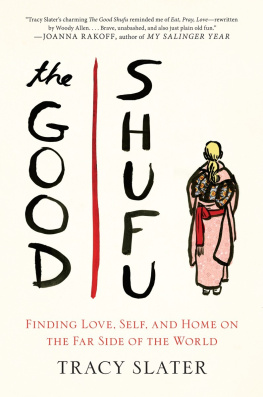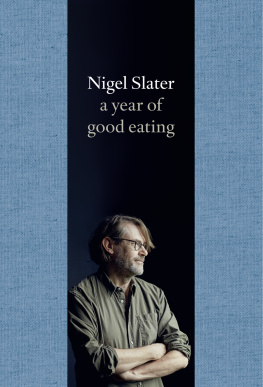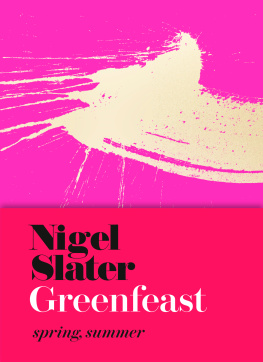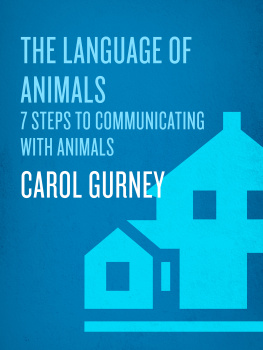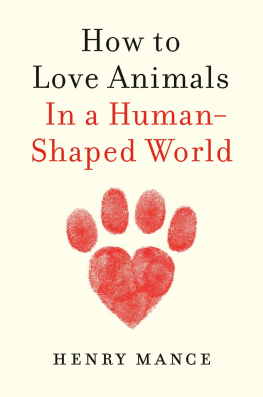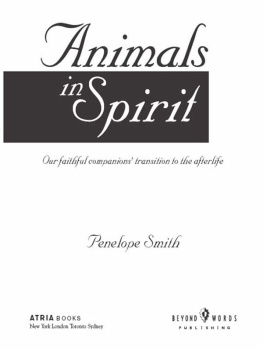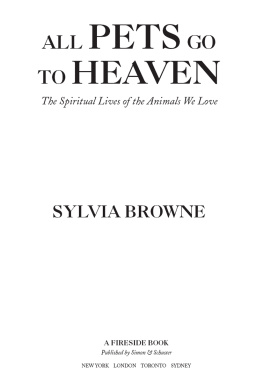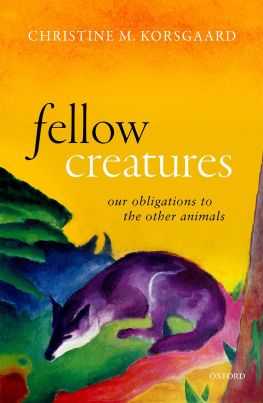Books by Lauren Slater
Blue Beyond Blue
Opening Skinners Box
Love Works Like This
Lying
Prozac Diary
Welcome to My Country
Edited by Lauren Slater
The Complete Guide to Mental Health for Women
The Best American Essays 2006

For Evans Huber
Authors Note
I have observed elsewhere that there is a significant difference between the truth of experience and the facts of everyday life. What I write about in these pages is often emotive, what I experienced, observed, and felt in different parts of my life. Some of the details Ive forgotten (and occasionally I make note of that in the text, as with the date of a tragic fire in ), and some Ive remembered, perhaps, imperfectly. So I may not have all the facts in perfect order, but I have no doubt about the truth of these stories.
Contents
1
The Egg
I grew up in a place called the Golden Ghetto, where people sang Hatikvah in the swept streets, celebrating another war won in the homeland. As children we were told our superior Jewish spirit would lift us up, if we were willing to try. Look around you, everyone said; see how wealthy we are? Back then I believed this, but now I see the story differently. I see rows of modest homes, the interiors often dim, with washed linoleum floors and heavy curtains hanging. On Fridays, at sundown, in the summertime, when the windows were lifted, we could hear sung prayers spooling through the air, the melodies merging with ours as we too blessed our bounty, tearing into the challas buttery braid. At the head of the table my father carved a kosher bird cooked in a garland of onions and coins of carrots flashing orange and floating in the broth. When I was eight years old I began to sense that the Golden Ghetto and our supposedly superior Jewish spirit were more wish than fact. I knew, for instance, that I could be kidnapped. I knew every bone was breakable. I put this information in some cut-off corner of my mind. What I wanted was a world I could wade in, some sort of perpetual summer. In such a seasonthe streets deserted in the heat, sun-drenched and silentI could follow the path of an ant for hours, crouching on the baking curb while watching the insect zig and zag, the black bead of its body ascending a stem, then dropping into the open cup of a wayward poppy rooted in the cracked concrete.
As I remember it, in those afternoons I was often alone on the street, at the peak of the summer heat, when people drew their blinds so the inside of almost every home was submerged in shadow, as if sunk to the bottom of the sea, the brilliant white light visible only as it seeped between the slatted blinds and spread across the sills like oil. Once the sun set, our neighbors emerged, the children in their pressed shorts, the women sitting on the stoops, a kerchief tied around the curlers in their hair, the husbands dragging the coiled hose from its reel and then the sudden spray drenching the parched ground, puddling on the scorched surface before slowly sinking in. For me, the ghettos gardens tell the story of this place, all the hedges trimmed, every flower staked and noosed at its neck. Our streets were spare, with hardly any trees, the towns Holocaust survivorsand there were many, old and bent-backedfrightened by all that branching, seeing in a single sapling(quickly yanked from its socket)the huge forests theyd hid in, escaping Hitlers grip. In those forests, they said, towering larches had crosshatched the sky, making scraping sounds when the wind blew. The ghettos grandparents had seen vipers living in the shadows cast by trees and had known animals with too many teeth use the yews for cover and for camouflage Our ninety-year-old neighbor, Mr. Eller, said he had seen people hung from low branches, their necks snapped in a second, the tongue taking longer to turn blue.
Despite its stark seasons, its steeply silent Sabbaths, its sadness and its fear, the Golden Ghetto was good enough for a child. Some days, when the heat rose so high the black tar melted, we would stamp our hands into the streets, so when you looked out your window you saw your road smattered with palm prints, as if primates had been let loose in the night. On Fridays, Erev Shabbat, we all sang the same songs in synagogue; then we all went home to bless our fruits and eat our ruddy roasts, this kind of neighborhood communing unusual, perhaps priceless, and yet, it left me longing. I never said to myself, I am longing; that feeling lived at a level below language, but nevertheless I knew it because of how I saw things, my mother unloading the toppling market bags, pulling out packages of marbled meat, or the charged color of a wet carrot, my mother with her apron on, her blade whisking away the tough skin, the rind coming off in curls and fragrant shavings I collected in my cupped hands, lifting them to my nose and breathing in that wild and rustic tang.
When I was young there was my world and then, as I grew, came thoughts of what was beyond us. At night, radio towers blinked on distant hills. I could hear from the environs of town the gunning of motors, the boom of a backfire. Sometimes late at night or early, early in the morning, when the summer mist lay like milk just above the grass, I heard my mother crying, and when I crept closer, I could see she always pressed a crumpled Kleenex to her mouth. Once she saw me see. She tossed her Kleenex in the trash and walked off, her high heels tapping on our polished floor. I wondered if her crying had to do with where we were, or where we werent. I didnt know. I wasnt sure. In sleep I sometimes heard, from far away, a lady knocking on a giant door, the door a mighty wedge of wood, her dress frothing around her feet, as snow fell. In the real world, the daytime world, the seasons switched, and the snow fell and fell and refused to stop, despite our expectations. Snow crept over our ground level windows and darkened the house. Snow turned the quotidian into a question mark, so the Ellers house next door, a house Id seen every day of my eight years on earth, suddenly looked utterly unlike itself, fangs of ice hanging off the gutters, a pole snapped in half lying across their drowning roof. School closed for ten days and the roads were all impassable. As the shreds fell from the blank but spilling sky, I saw two policemen ride down our street on huge horses, the horses high stepping in the mounds and drifts. The horses were white and as they melted into the distance it seemed as if the animals became a part of the swirling storm, their massive bodies breaking up into flakes and dancing down the drafts of wind, a sight so beautiful, so foreign, so impossible I felt a kind of deep and wild want, but for what I couldnt say.
And then, just like that, the snow stopped. The sky cleared. Spring came. The clouds shook themselves out and, as if embarrassed by their excess, appeared against their common blue background all fleecy and preened. The winter had been long and wet, and it did something odd to the earth. The earth was juicer and darker than usual, and pink worms were everywhere, wriggling with abandon, their bodies translucent, our science teacher holding one up to the light and showing us the dark sac of the stomach and the small smear of the brain. My birthday came on March 21, the first day of spring, my sign the ram with her white horns in a thicket.



